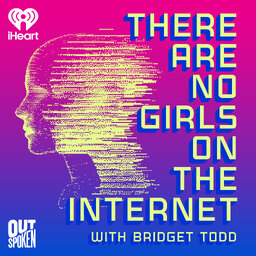DISINFORMED: This TikTok creator says you probably won’t be trafficked in a parking lot
TikTok is a hotbed of viral misinformation about trafficking. Jessica AKA BloodBathAndBeyond is trying to change that.
You’re Wrong About’s Micheal Hobbes’ episode: https://podcasts.apple.com/us/podcast/disinformed-were-wrong-about-trafficking-w-michael-hobbes/id1520715907?i=1000518893578
Follow Jessica on TikTok: https://vm.tiktok.com/ZMeV4t1Hb/
For more information about trafficking, check out the Polaris Project: https://polarisproject.org/
Learn more about your ad-choices at https://www.iheartpodcastnetwork.com
In 1 playlist(s)
There Are No Girls on the Internet
Marginalized voices have always been at the forefront of the internet, yet our stories often go over…Social links
Follow podcast
Recent clips

BAFTAs racial slur; Nicki Minaj bot network; TikTok “Psychic” faces Defamation trial for University of Idaho murders – NEWS ROUNDUP!
1:16:39

A TANGOTI Announcement We've Been Sitting On
47:34

Chris Pratt Is Hawking an Anti-Abortion Prayer App; Elon's Grok Is Doxxing Women; DOGE Bros Let ChatGPT Do Their Job; Trump’s Big DEI Loss – NEWS ROUNDUP
1:07:04
 There Are No Girls on the Internet
There Are No Girls on the Internet